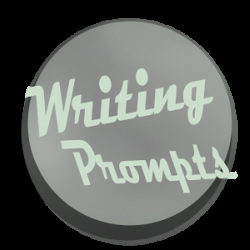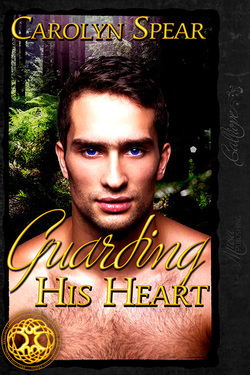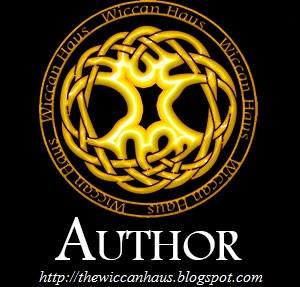|
Romance Weekly's Authors answer questions about serious and non-so-serious aspects of writing. Enjoy! This week's questions come from JJ Devine. When someone finds out you’re an author, how do you handle the statement, “I have a story you should write”? This doesn't happen much. Many of my friends are writers. If they have a great idea, they use it or jot it down in their story file to write at a later date. Friends have suggested plot twists or that I use a situation in a story but never offered a plot to me to write. If a person ever did, I'd propose that he or she would have a better perspective for writing the story themselves and offer assistance and resources. Maybe he or she has a writer trapped inside just aching to be set free!  Do you write what you read? Well, I read what I write (paranormal and contemporary) and what I call "Men's Fiction". I am drawn to stories with magic but where the hero or heroine must find the answer within themselves to save the day versus relying only on any special powers. Nora Roberts' Three Sisters Island trilogy is my favorite. She is a master at crafting a trilogy or series with that overarching theme/impending doom conflict. I especially love that the women are not actual sisters, but sisters in the craft and sisters in friendship. I also read adventure, thriller and mystery, which I'll call "Men's Fiction" because there's romance only where it suits the story. Hardly ever. My favorite authors are Brad Thor, Matthew Reilly, Brad Meltzer, Clive Cussler, Steve Berry, Lee Child and James Rollins. I love a book that grabs me by the throat and takes me on a runaway train ride of a story. All of these authors have books so well researched and written that I learn something new-and sometimes frightening-with the break-neck fast-paced plot. These men write the kind of men who are heroes in my stories: strong, moral but flawed men who stand up for what is right, even if it may not be lawful. People often mistake the lifestyle of a writer as glamorous, give us the scoop, what about your lifestyle would shock your readers? The only scoop: I'm personally pretty inhibited. I let loose with my heroes and heroines. Nothing about my lifestyle would shock a reader. I have a family and husband who require much tending and nurturing so I'm not sitting around popping bon bons and sipping champagne. Even if I could, it's not me. I'm totally down-to-earth and my ideal afternoon is curling up beneath a tree with a good book or working in the garden. I would say most authors are a bit more introverted and introspective. I definitely am a people watcher, a ponderer and a thinker. I am more comfortable in jeans and t-shirt than sequins and heels so I do not qualify for the glamorous life. This is what the actual writing process looks like much of the time:   Romance Weekly's Authors answer questions about serious and non-so-serious aspects of writing. Enjoy! 1. Do you have a favourite character from any of your books? It's very hard to choose one because all the heroes could be my man and all the heroines have a part of me in them. My hero, Trevor Greene, from Guarding His Heart is a favorite because he is unique- a Watcher, better known as a Bigfoot- who shifts between his human side and his more wild side. A gentle giant, he uses his innate ability to blend into his surroundings to protect a little boy who's in danger. He's tall, dangerous and sexy. What's not to love? 2. If you were him/her what would you have done differently in their situation? I would have trusted my heart more, but Trevor's learned he can't trust humans. The boy's teacher attracts him like no other woman but she's human. Luckily for him, she's stubborn. 3. Do you believe in the traditional HEA or do you think sometimes characters don’t need (or maybe deserve) them? I love a Happily Ever After but there are situations where the best you can get is happily for now. And, of course, some characters don't deserve ultimate happiness. I like writing HEAs, though, so you'll find one in most of my books. It's been fun answering these questions. Hop over to Kate Robbins' blog to check out her answers to the same questions. It's bound to be great with an author who writes about Scottish Highlanders. I love a man with an accent.  1. Turn it around- Look at a well-known tale, fairy tale or historical event from a different point of view. Every story has at least two sides. As a stepmother, I have often wondered if Snow White’s stepmother could tell her side, if we wouldn’t have seen Snow White as a snotty, self-indulgent girl who ran away after being caught with a stable boy in the royal gardens. 2. Take a trip- Star Wars and the Wizard of Oz are both allegories. Place an historical event or political intrigue in another locale, time or reality, change the names and faces to protect the innocent—or the guilty—and you have a fresh take on an old story. 3. Walk in their shoes- When waiting to see the doctor or in line at the grocery store, observe those around you. Every single person has a story. Why is that man limping? Why is that mother so short-tempered with her children? Don’t make judgments, observe and let your imagination free. 4. Turn your negatives into positives- Like songwriters who turn their failed relationship experiences into hit songs, authors sock away negative events as fodder for upcoming novels. Simple irritations such as jury duty or dealing with coworkers to seriously painful events as loss of a relationship or a loved one provide realism for your characters when you plumb that reservoir of emotion. 5. Dive into your hobby- Use your hobby to provide depth to your story. Accurate details resonate with readers for successful novels. The saying “Write what you know” rings true every time. 6. Write what you don’t know- Find a topic that excites or intrigues you, research it and infuse that enthusiasm and passion into your hero or heroine. The antagonist can respond with an attitude of banal superiority and voila, instant conflict or basis for a contemptuous romance. 7. Humanize an event- A couple of my favorite authors, Steve Berry and James Rollins, take historical events and examine them from the viewpoint of an historical figure. Wrap a current conspiracy and real relationships throughout and they have top ten sales every time. 8. Wonder what if- From historical events, common folk or fairy tales, or your own memories, imagine a different turn in events. What if 9. Mix it up- Mix up different tropes to get a fresh story. Go crazy and write tropes, character options and settings/time periods on dice and let your muse choose your next endeavor. Even if you don’t use all the suggestions from the dice, it might give you a new direction to examine. 10. Play games- Game playing can spark creativity. Once Upon a Time, Gloom and Elder Sign enable players to stretch their imaginations to win. Play has always been a way to release your inner muse. Most of us repress them as we become adults and responsible. 11. Work it out- Give your brain a rest and work out. Take a walk. Go for a bike ride. Dance. Exercise increases your blood flow, improving your focus while allowing your mind to relax. Whatever you do, keep writing.  Finally have all the chores done, a quiet room, and an empty house? Ready to sit down and put those great ideas and vivid images on paper (or keyboard) and then your brain seems locked up? Here are some electronic keys to release your genius. Available on Google Play store, Writing Prompts is an Android based application. This free app provides 500 prompts divided into categories like Fantasy, Crime and Animals. For an additional 99 cents, you can purchase 250 more prompts for Romantic and Travel categories. For the iPhone or iPad enthusiast, try Writing Prompts by Writing.com. Available from the iTunes store for $1.99, this app features your choice of word, sketch or scene prompts. You can expand your choices with in-app purchases for 99 cents each. Like simplicity? Just need to jar your brain into gear? Try oneword.com. One word appears and you have sixty seconds to write about it while a built in time counts down. However you break the writer's block, just do it and get your story down!  My Christmas present came early in the form of the cover for my Wiccan Haus novella. A holistic retreat for rest and rehabilitation, Wiccan Haus caters to both humans and Paranormals. While the staff institutes safeguards to keep the Para's existence secret and the humans puncture free-vampires are welcomed- guests have a way of crossing the lines. In Guarding His Heart, Trevor Greene is one such Paranormal who uses his special abilities to protect a little boy. After the boy's school is attacked, Trevor blames himself for not preventing it. He dispatches the assailant but not before receiving a grave injury. Trevor finds healing for his wounds with the Rowan siblings at Wiccan Haus. Will he find a woman to soothe his soul and accept all that he is?  You have to visit the Wiccan Haus blog! Awesome concept: shared world with multiple authors writing stories using the same setting and basic characters (staff). Think Fantasy Island or Love Boat in book form, just hotter and way better. The first link is to Sara Daniel's blog, where she interviews Armando from one her Wiccan Haus books, Psychic Lies. The second link is to the Wiccan Haus blog, where one of the paranormal sibling owners, Cyrus, is the definition of tall, dark and damaged. Or is that dangerous? Both. Don't forget sexy!  My previous post discussed three apps/programs for online organization. After struggling to remember what I had named a poor schmuck I'd killed off, I decided I needed a system. I love systems! If I had a Mac, I'd have used Word Notebook. It's just like a 5 subject wire bound notebook with tabs. Very cool and a Microsoft product so if you use Word for writing, it's easy to use. I have a Windows laptop and have yet to find the Notebook option in MS Word for PC. So, I decided to use Gingko. And I love it! It's a card style tree outline. I started with characters, of course. Each character gets his or her own card, where I write the basic physical description. I add another card for internal conflict, external conflict, family members, backstory. Think three column outlines. I added a setting card under the character card on the first tier. The last card on the first tier is about herbs and potions used in homeopathic healing. So, I am now organized in my details and I can quickly access information at will. The best part is that it is cloud based, so I can access it anywhere. Try it!  Writers are busy people. We have lives apart from our characters and their issues. Children, and pets who are our special children, require attention. Spouses need affection and nurturing, too. And sadly, our personal muses refuse to take over the chores that would free us up to write more. If you have convinced yours to do your housework, please tell me your secret. What we need more than anything is time. Beautiful, shiny minutes that add up to sparkling hours to spend with our beloved friends everyone else thinks are characters. One way to save time is to be organized. Here are three free ways to organize your character sketches, setting descriptions and research. 1. Google docs. You can create documents and spreadsheets and file them in a folder with your WIP’s title. All you need is a Google Mail account (free) and you can access your files on your Google Drive from any device. While it doesn’t have the formatting necessary for submitting your manuscript to a publisher, it is a great place to store documents. 2. Gingko. A new Chrome app, this cool new program organizes your notes in “tree” format. It’s like notecard writing from high school, but way sexier because it’s digital and cloud based. I am so using this for my next manuscript! 3. Evernote Web. This Chrome app is also available through the Apple App Store so it’s universal. Accessible from any device, you can make notes whenever inspiration hits you. Widely used in education and business, that many users can’t be wrong! Try one or all of these organizing apps. Put everything in one place—including your characters sketches—and your heroine won’t end up with a different eye color at the end of your masterpiece. After fighting for two days with Google sites, I've decided to go with Weebly because of features and ease of use. Seriously, it's for everyone. I've built Google sites for work, so I have some experience, but Weebly isn't a greedy time leech.
Currently prepping for NaNoWriMo so I can write prose. After using Alan Watts' 90-Day Novel to get to know my characters, I feel confident I'll complete the challenge of 50,000 words. I love the idea of writing roughly 1,700 words a day. Having a solid goal helps keep me on track. So I WILL do it! |
Details
Amazon Bestseller-
Shifters & Spice (e-book 99 cents!) AuthorRomance writer. Paranormal and contemporary. Mother of two and wife of perfect husband. Love the environment, travel and reading. Subscribe:Archives
May 2017
Categories
All
Blogs I Follow |


 RSS Feed
RSS Feed



